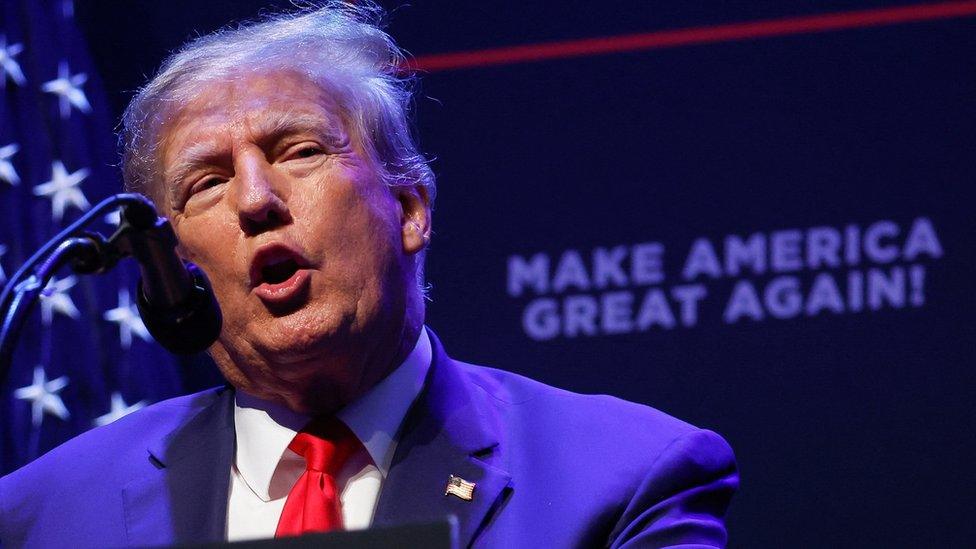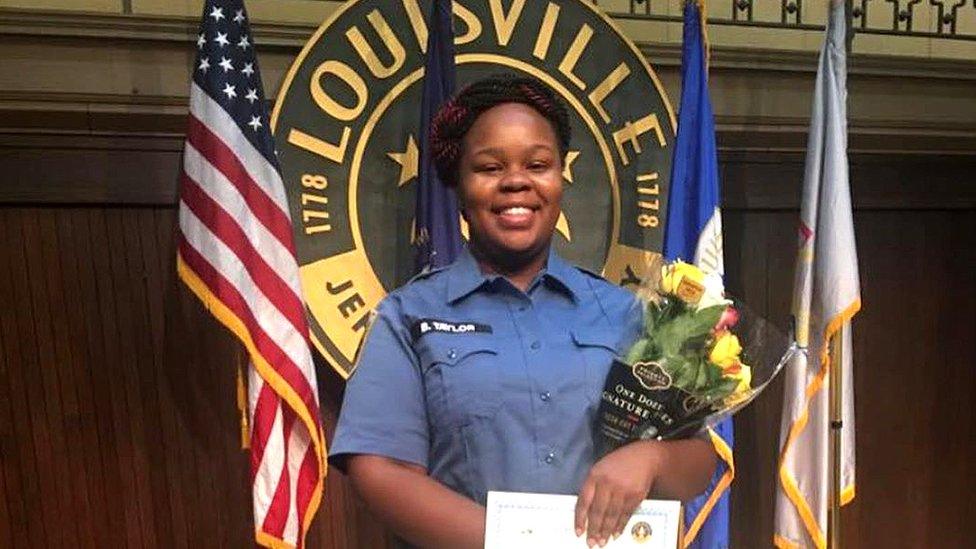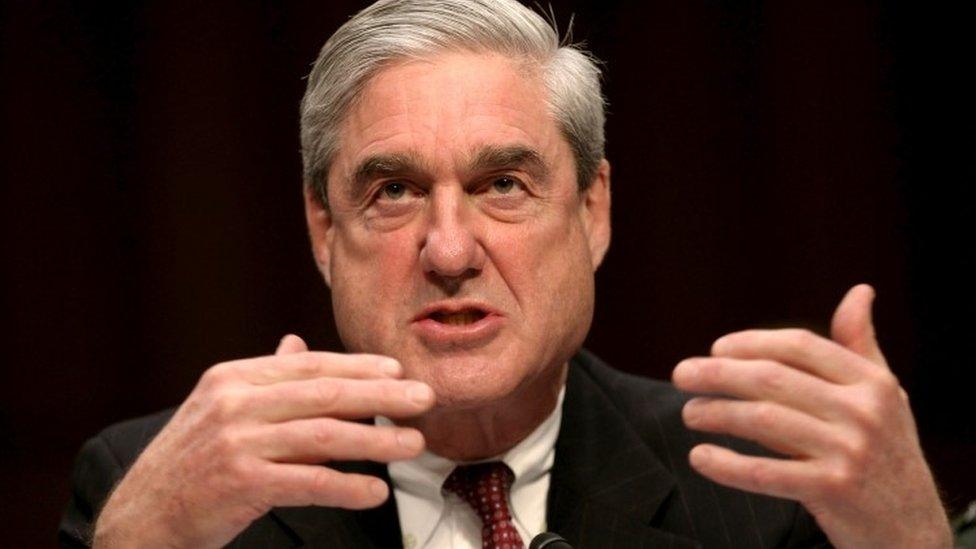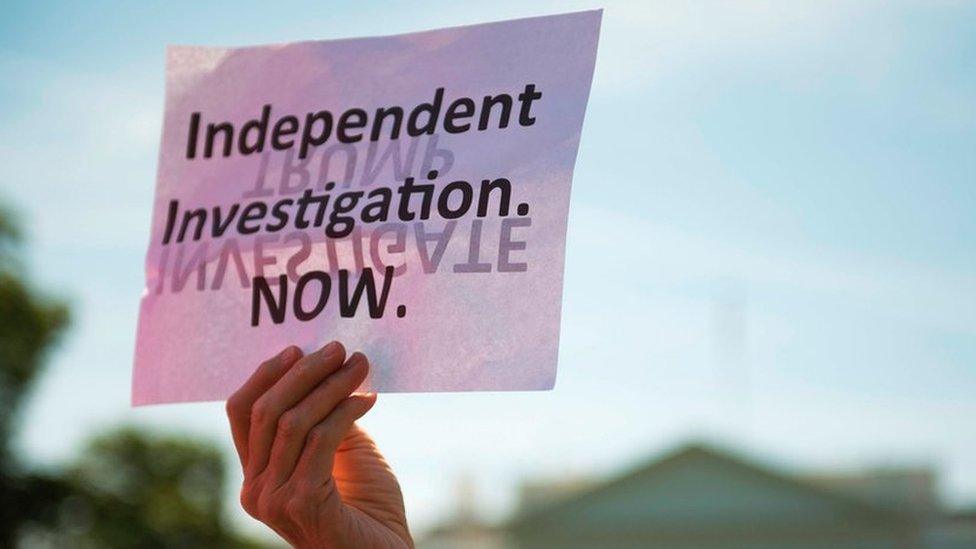What is a US grand jury?
- Published

Former US President Donald Trump is to be charged over hush money payments made to a porn star by his former lawyer, Michael Cohen, just before the 2016 presidential election.
A grand jury has voted to indict him after investigating a $130,000 payout to Stormy Daniels in an attempt to buy her silence over an alleged affair.
Mr Cohen and two ex-aides are among those understood to have testified in front of a grand jury in New York. But how exactly does this system work?
What is the purpose of a grand jury?
A grand jury is set up by a prosecutor to determine whether there is enough evidence to pursue a prosecution.
In legal terms, it determines whether probable cause exists to believe a crime has been committed.
In order to come to this conclusion, the jury is given investigative powers. It can issue subpoenas to compel people to testify or hand over documentation relating to the case.
Members can also question witnesses, who are not allowed to have lawyers in attendance.
Why is it in the legal system?
It is in the Bill of Rights. The Fifth Amendment says: "No person shall be held to answer for a capital, or otherwise infamous crime, unless on a presentment or indictment of a Grand Jury."
Who is on a grand jury?
Members of the public. The US courts handbook says they "are drawn at random from lists of registered voters, lists of actual voters, or other sources as necessary".
Jury members may be called for duty for months at a time, but need only appear in court for a few days out of every month.
How many are on the jury?
This can range from as low as six to as high as 23, although a federal grand jury usually comprises 16 to 23 people.
Hence the term "grand", because the trial - or "petit" - jury is usually smaller.
How else does it differ from the trial jury?
Unlike the trial jury, the grand jury does not determine whether a person is guilty of a crime.
It also sits in secret. There is no media coverage. Generally, the person under investigation is not allowed to be present.
The reasoning behind the secrecy is that it protects the jurors from intimidation. It also protects innocent people from unfounded charges.
How does it decide to indict?
The jury does not have to be unanimous to recommend an indictment - or criminal charge.
The majority can vary. It can take a two-thirds, or three-quarters verdict.
Federal, state and county prosecutors all use grand juries, but all federal crimes must have a grand jury indictment.
However, if the jury does not vote for indictment, charges can be still be brought if prosecutors convince a judge.
Grand jury processes can last months, even years.
While all states have provisions to allow for grand juries, only around half use them, with other states preferring to rely on a preliminary hearing to determine whether or not to indict a defendant on non-federal charges.
Related topics
- Published8 October 2020

- Published4 August 2017

- Published24 July 2019
